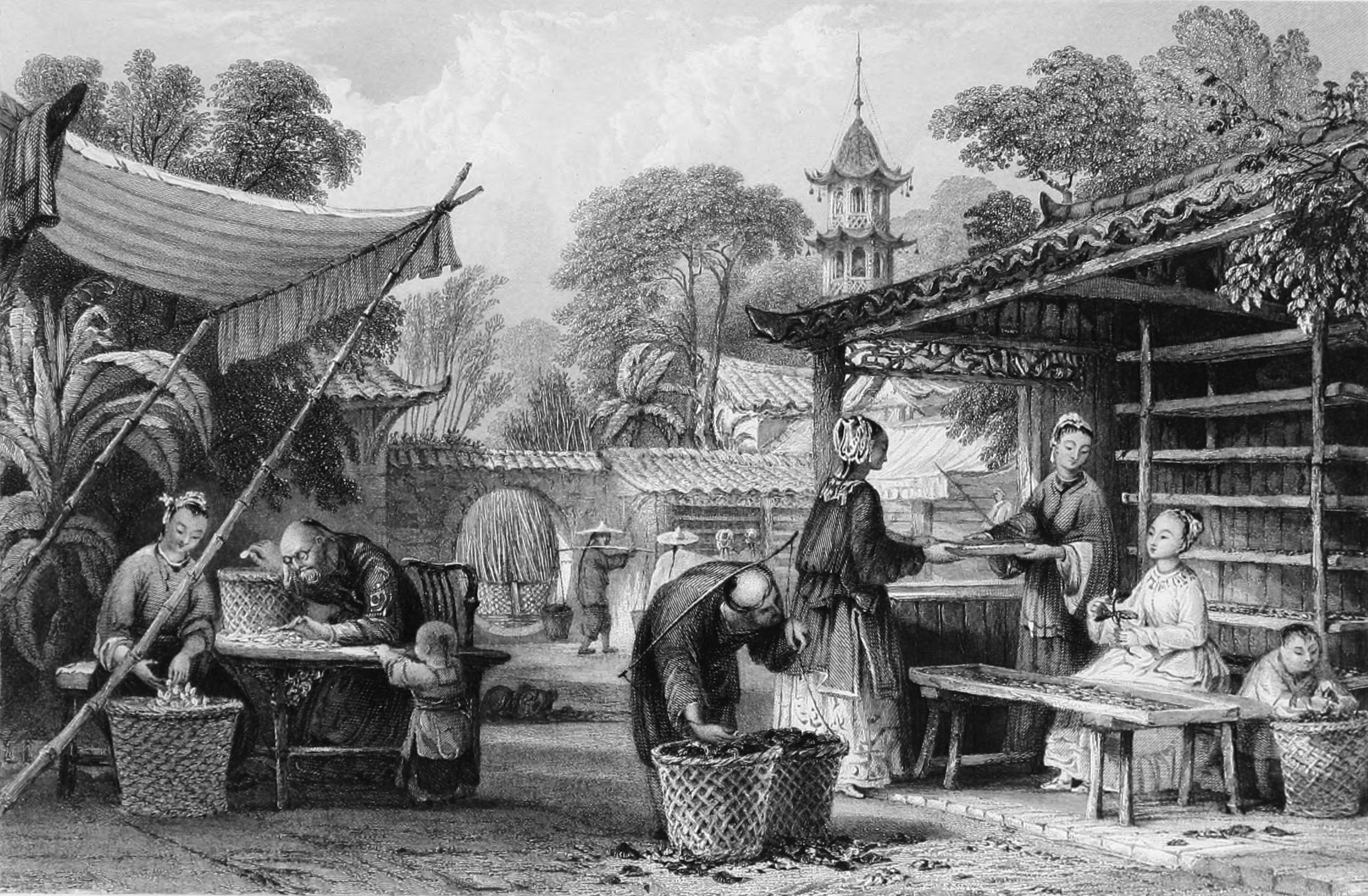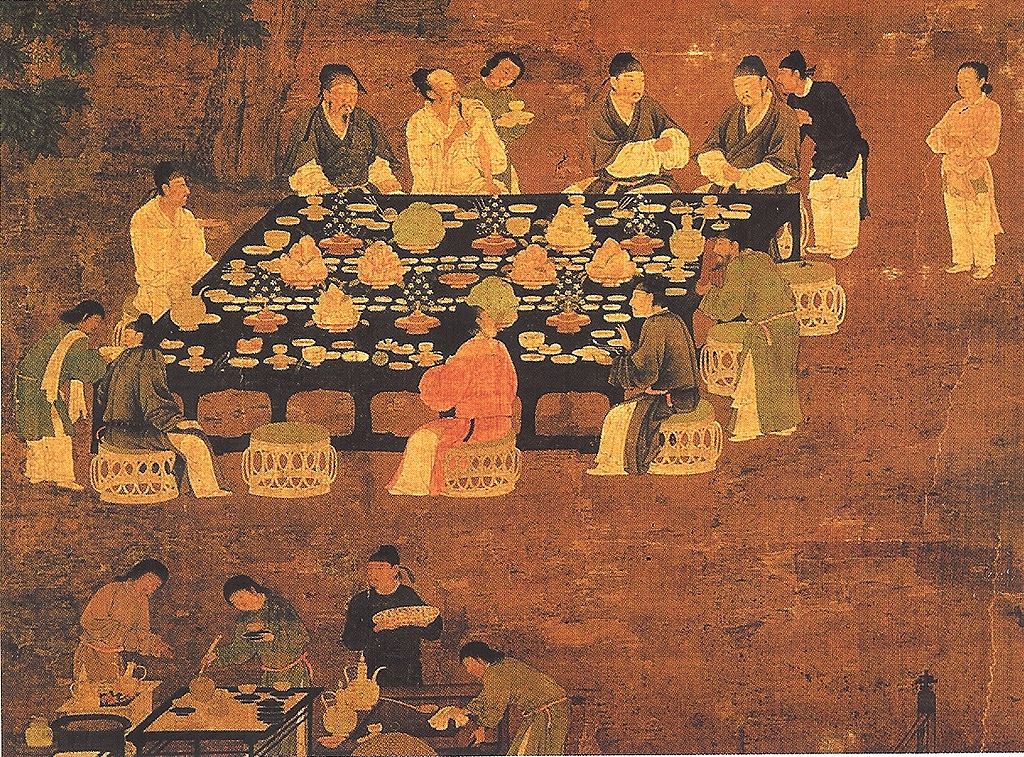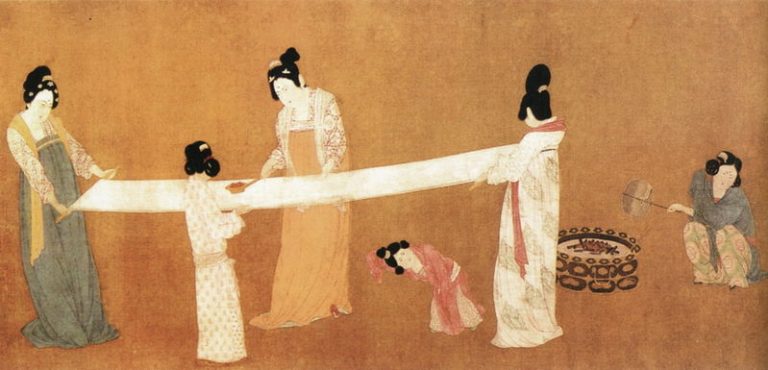Instructions for Chinese Women and Girls (Nǚ jiè 女誡) is an ancient Chinese guidebook for cultivating traditional feminine virtues. Written by polymath Ban Zhao (班昭), it addressed the need for girls to be educated in virtues, and quickly became a lasting reference for raising daughters in China for many dynasties to follow. This series focuses on the virtues of traditional women and their role in harmonizing family and society.
Continued from: Ban Zhao’s Precepts for Women (Part III): On Being a Devoted Wife
In addition to proper virtue, proper speech and proper bearing; industriousness was one of the four qualities that all Chinese women aspired to cultivate in ancient times. Following the natural laws of yin and yang, women usually took care of the internal affairs of the family, making sure that husband, children and elders had all their basic needs met.
To fulfill this role, women learned to cook, clean, sew and weave from an early age. In the process of developing these skills, women also improved their character by learning to be thrifty, tidy and punctilious.
Nurturing the family
There is a Chinese saying that goes, “The whole year’s work depends on a good start in the spring.” In her guidebook, Ban Zhao equated the important groundwork of springtime with the early morning, when each day was planned and shaped. Thus, she exhorted women to rise with the sun and tackle the most important tasks in a timely manner.
As the rooster crowed, a diligent lady would arise, dress neatly, wash her face, comb her hair and make her way to the kitchen, where she would begin preparation for the day’s meals. She observed strict etiquette in preparing food, carefully minding every stage of the process to ensure not only healthy, enjoyable meals, but also the propriety with which the food was handled.

Success
You are now signed up for our newsletter
Success
Check your email to complete sign up
Three meals would make up the daily menu, none of them served too early or too late. While cooking, the wife did not casually taste samples, as it was appropriate to wait until the food was fully prepared and the husband joined in the meal, before taking the first bite.
Providing suitable clothing
The women of ancient China learned early on to make silk and cotton. The production of these natural fibers, coupled with their skillful sewing and weaving, enabled women to clothe their families and keep their garments in good repair.
“With wholehearted devotion to sew and to weave, to love not gossip and silly laughter, in cleanliness and order to prepare the wine and food for serving guests may be called the characteristics of womanly work.”
Ban Zhao, Instructions for Chinese Women and Girls
Making silk was a painstaking process that required patience and diligent care. A woman’s delicate touch and meticulous attention certainly facilitated the process.
The task involved raising silkworms and collecting mulberry leaves to feed them until they wove their precious silk cocoons. An attentive lady would protect the worms from wind and rain, keeping them in a clean space and making sure not to crowd them.

Keeping the home neat and bright
A woman’s bearing and cleanliness was not only reflected in her appearance, but also in the neatness of her home. In ancient China, women learned to sweep, clean and wash from a very young age; so that when they married, they could ensure a well-kept and comfortable environment for their families.
A lady’s tidiness was noticeable in the smallest details, such as the cleanliness of the kitchen utensils and the impeccable arrangement of the dishes on the table. If any area of the house became untidy or accidentally soiled, a diligent woman would not postpone her duty, but take care of it promptly.
“Let a woman retire late to bed, but rise early to duties; let her not dread tasks by day or by night. Let her not refuse to perform domestic duties whether easy or difficult. That which must be done, let her finish completely, tidily, and systematically. When a woman follows such rules as these, then she may be said to be industrious.”
Ban Zhao, Instructions for Chinese Women and Girls
The importance of industry
Women also learned to store and manage food so that the family had ample supplies not only on a daily basis, but also for guests during feasts and festivals. A diligent lady kept the family’s provisions in clean containers and was careful to avoid wasting food.
Whether the family enjoyed great wealth or lived in poverty, an industrious woman used her wisdom to prepare wholesome but modest meals. This humble attitude was based on the Chinese belief that great wealth is a gift from Heaven, and that tribulations — including financial hardship — are an opportunity to improve one’s character and remain good-natured.

A virtuous woman would also tend the family’s livestock — usually pigs, chickens, geese and ducks. She would take care of all their needs, and raise them with respect and compassion, in accordance with the traditional Chinese belief in harmony between nature and mankind.
As the ancient Chinese believed in the laws of karma, they knew that doing good to others could only result in good returns. A virtuous lady’s industriousness, coupled with a generous heart, could bring nothing but blessings to the family.
Note: The quotes in this article are from Nancy Lee Swann’s English translation of Ban Zhao’s original work.
Continue reading: Ban Zhao’s Precepts for Women (Part V): On the Instruction of Children














